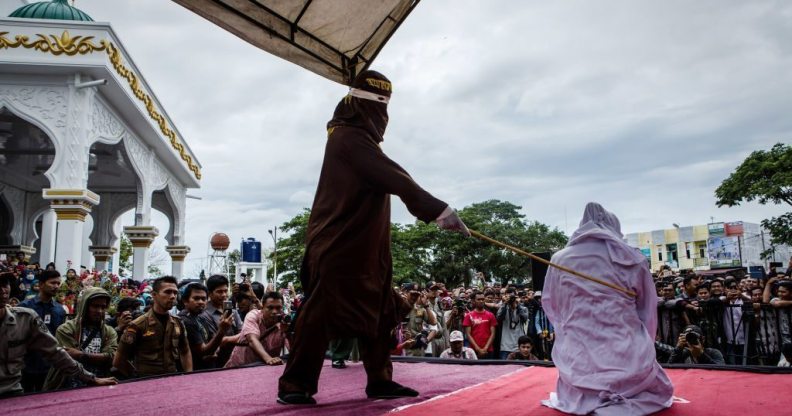Indonesia to reject 75 UN human rights concerns over treatment of LGBT people

(Getty)
Indonesia is set to reject 75 United Nations Human Rights ‘concerns’ including worries over their treatment of LGBT people.
The government in the country said that it was likely they would reject the recommendations set out by the UN.
The recommendations largely took aim at the poor treatment of the LGBT community, as well as the blasphemy law and death penalty which the UN deemed abusive.
The Indonesian Ministry of Foreign Affairs deemed the suggestions “hard to accept” but failed to cite reasons why other than “Indonesian conditions”.
The suggestions, which were set out in hopes of improving human rights in the country, were made in May 2017.
Indonesia must formally acknowledge the recommendations which were given by Ireland, Sweden, Angola, Spain, Germany and the US.
They can either respond with “accept” or “note”, which signals essentially a rejection, by September 2017.
The country faced backlash from the UN Human Rights Council after a series of arrests and floggings of LGBT people despite homosexuality not being illegal federally, if it is private, consenting and non-commercial.
A gay couple were given 83 lashings as a punishment for having sex in the country.
The most recent arrests are under Islamic law in the Aceh region of the country.
The police chief in the country’s most populous province announced that a task force would be brought in to crack down on “secret parties” by LGBT people.
Amnesty International has urged Indonesia to stop the caning and arrests of LGBT people.
Anti-LGBT discrimination is said to be costing Indonesia as much as $12 billion every year, according to a recent study.
The losses are a result of barriers to employment, education, healthcare, as well as “physical, psychological, sexual, economic and cultural violence” suffered by LGBT citizens.

